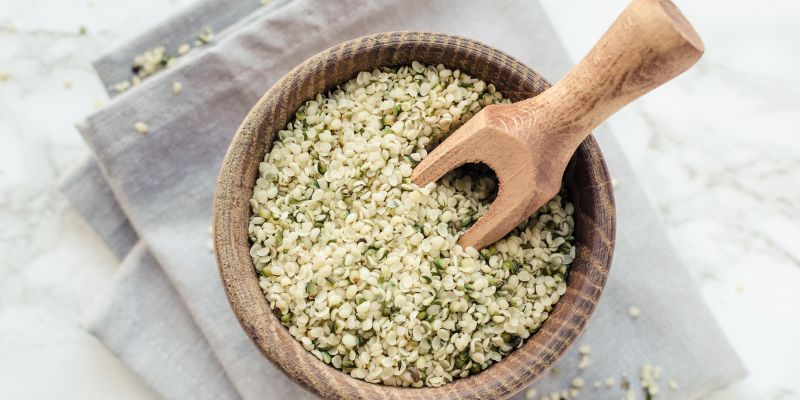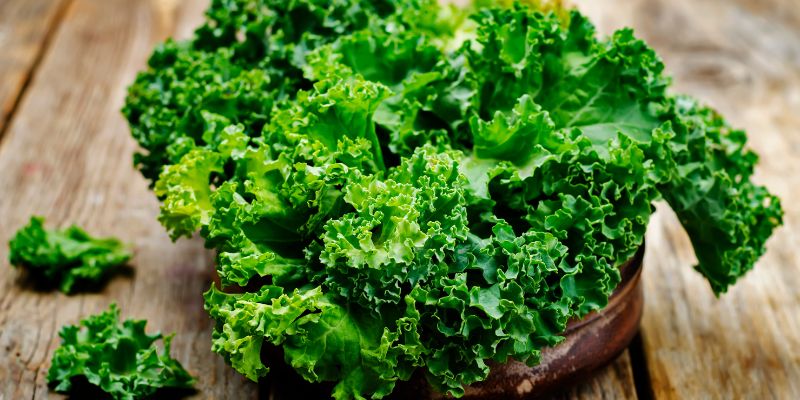Introduction
What’s cooking in your kitchen today? Is that a “samosa” or “bread pakora”? Wait…did you say…healthy food?! Then let’s explore our list of the Best Canola Oils in USA.
“Canola oil”…is that like olive oil? Well, somewhat! It is a lightweight & smooth textured vegetable oil with a high smoke point and is your most resourceful medium for grilling, baking, stir-frying, sauteing, salad dressing, marinades, or your zesty sauces.
Recalling the good old days flashes memories of first fire use by our ancestors and the use of animal fats as a cooking oil medium at a much later stage highlighting the evolutionary path we have traveled for ages. As the tale unfolds, Canola is a wholesome cooking option that dates back to the early 1970s, when some rapeseed cultivators came up with these plant seeds in Canada. The exquisite marriage of “Can” and “Ola” meaning a low-acid oil from Canada gives you a highly edible vegetable oil with less erucic acid content.
Wondering which brand to choose? What ingredients would fit your health chart? What health benefits or demerits should you look forward to? We`ve got you covered! Strike off your ‘panic-checkerlist’ with our list of 6 Best Canola oils in USA and embrace a ‘healthy heart oil’ regime for your blooming lifestyle.
Sounds exciting!! All set to climb the fitness ladder with a flavorsome twist?

Our pick of the 6 best Canola Cooking Oil of 2024 in USA
Zotezo Score | Best Canola Oil | Lowest Price |
|---|---|---|
|
A+ |
||
|
A+ |
||
|
A+ |
||
|
A+ |
||
|
A |
||
|
B+ |
Let's take a deep dive into these 6 best Canola Oil in USA
Best Overall Canola Oil in USA
Amazon.com Services LLC.
A+
Zotezo review
The 365 by Whole Foods Market Canola Cooking Oil is a high-quality, versatile option for various cooking methods with a smoke-free feature up to 450°F. While it offers an affordable price and long-lasting quantity, some users may find the durability of the easy-pour lid lacking and the price slightly higher than other brands.
Product details
Benefits of Whole Foods Canola Cooking Oil, ...
Drawbacks
La Tourangelle
A+
Zotezo review
La Tourangelle Organic Canola Oil is a high-quality, organic cooking oil with a neutral flavor and high smoke point, making it ideal for various cooking techniques. While some customers experienced issues with shipping damage and limited availability of other varieties, the oil’s organic and non-GMO qualities make it a reliable choice for health-conscious consumers.
Product details
Benefits of La Tourangelle Organic Canola Oi...
Weaknesses
Amazon.com Services, Inc.
A+
Zotezo review
The Amazon Brand, Happy Belly Canola Oil in a 48 fl oz bottle is a versatile and light-tasting option that is ideal for cooking and frying. With its cholesterol-free feature and affordable price point, it’s a great choice for everyday use in the kitchen.
Product details
Benefits of Happy Belly Canola Oil, 48 oz
B&G Foods, Inc
A+
Zotezo review
The Crisco Pure Canola Oil, 40 Fluid Ounce, offers a flavorless, versatile, and light texture option with 0g Trans Fat per serving and being cholesterol-free. However, some users have noted inconveniences with the packaging and limited availability in certain regions.
Product details
Benefits of Crisco Canola Oil, 40 oz
Negatives
A
Zotezo review
The AVO ORGANIC 100% Canola Oil offers a high-quality organic option with no preservatives, rich in Omega-3 and Omega-6, making it a healthy choice for those who prioritize organic ingredients and essential fatty acids. However, its benefits may be limited for those who do not frequently fry foods or prioritize organic products.
Product details
Benefits of AVO ORGANIC CANOLA Oil Multipurp...
Cons
B+
Zotezo review
The AVO Non-GMO Certified Expeller Pressed Canola Oil offers great value and is ideal for high-temperature cooking. While praised for being cholesterol-free, some users have reported issues with the container’s pourability and packaging leakage during delivery.
Product details
Benefits of AVO Non-GMO Canola Oil – 1...
Drawbacks
Tips for choosing the right Canola Cooking Oil for you
When looking for the best canola oil in USA, never compromise on the following factors:
Types of Canola Oil:
Canola oil comes in four predominant varieties and is differentiated based on two factors – the kinds of seeds used and the means of oil production. Each type of canola oil has a specific feature, but choosing the right one is challenging.
- Organic canola oil: It is the most authentic and best-quality variant of canola oil. It involves pure or organic canola plant seeds and mechanical pressing for oil production. In close resemblance to the expeller pressed type, this canola oil uses no chemical solvents and retains the maximum nutrition and antioxidant benefits.
- Regular canola oil: This Canola oil comes from Canola oil plant seeds and is processed using solvents, mostly Hexane. Generally obtained from GMO crops, this is the most basic form available in the market. This variant of canola oil is your low-budget option for a tasty treat. Top it as a salad dressing and add that extra zing to your taste buds with health merits to die for.
- Expeller-pressed canola oil: Made with traditional canola oil seeds, this type of canola oil is produced via a physical press. With health benefits similar to extra virgin olive oil, this type involves less oil production with no chemical solvents. Minimal oil pressing ensures a higher nutrition level and antioxidant properties. This class of Canola oil is expensive in comparison to other types.
- Non-GMO expeller pressed canola oil: This sort of canola oil comes from non-genetically modified canola plant seeds. With mechanical pressing similar to the expeller type, this canola oil variant uses no chemicals like the regular canola oil.
Shelf Life:
All canola cooking oil bottles, cans, or pouches come with specific manufacturing and ‘use before’ date or period. Keep a check on the mentioned date at the back of your pack. It would help if you never consumed a canola oil pack that has crossed its “use before” date/period as it may lead to stomach upset, food poisoning, or other grave health hazards.
Brand:
Another vital factor is the brand. Stick to your favorite brands, if any; otherwise, don`t experiment much. Sometimes, branded canola cooking oil may yield better health benefits than lesser-known brands.
Price:
Investing in the proper cooking oil is an asset to your health. It is essential to check the price tag before you settle for your favorite canola oil. Regular canola oils are usually the cheapest options available in the market, while the organic and other types might pinch a hole in your pocket.
Products listed here are carefully reviewed and tested by our expert authors and reviewers. If you buy through links on this page, we may earn a small commission. Here’s our editorial process.
How we reviewed these products
Benefits of using Canola Cooking Oil
Like all fats and oils, canola cooking oil is calorie-dense, so it’s important to use it in appropriate amounts as part of a balanced diet to maximize its health benefits. Canola oil offers several health benefits, making it a popular choice in many kitchens. Here are the top six benefits of using canola oil:
Heart Health:
Canola oil is known for its heart-healthy properties. It contains a favorable fatty acid profile, with low levels of saturated fat and high levels of monounsaturated and polyunsaturated fats, particularly omega-3 and omega-6 fatty acids. These healthy fats can help reduce LDL (low-density lipoprotein) cholesterol levels, which are considered “bad” cholesterol. By lowering LDL cholesterol, canola oil helps to improve overall heart health and reduce the risk of heart disease and stroke.
Lowers Inflammation:
The omega-3 fatty acids in canola oil have anti-inflammatory properties. Chronic inflammation is associated with various health issues, including heart disease, arthritis, and certain cancers. By incorporating canola oil into your diet, you may help reduce inflammation and promote better overall health.
Rich in Vitamin E:
Canola cooking oil is a good source of vitamin E, a group of fat-soluble antioxidants that protect our cells from damage caused by free radicals. Vitamin E plays a crucial role in supporting immune function, skin health, and cellular repair. Consuming canola oil can contribute to your daily vitamin E intake and provide additional antioxidant protection for your body.
Versatility in Cooking:
Canola oil’s high smoke point (around 400°F or 204°C) makes it suitable for a wide range of cooking methods, including frying, baking, sautéing, and grilling. Its neutral flavor allows it to complement the taste of various dishes without overpowering them. Its versatility in cooking applications makes it a practical choice for everyday meal preparation.
Supports Brain Health:
The omega-3 fatty acids found in canola oil, particularly alpha-linolenic acid (ALA), are essential for brain health and cognitive function. ALA is a precursor to other omega-3 fatty acids like EPA and DHA, which are known for their brain-boosting properties. Regular consumption of canola cooking oil can support brain health and may help reduce the risk of age-related cognitive decline.
Lowers Bad Cholesterol (LDL):
One of the most significant benefits of canola oil is its ability to lower LDL cholesterol levels. LDL cholesterol is a major risk factor for cardiovascular disease, and replacing saturated fats in the diet with healthier fats like those in canola oil has been shown to have a positive impact on cholesterol levels. The monounsaturated and polyunsaturated fats in canola cooking oil helps to reduce LDL cholesterol without negatively affecting the levels of HDL (high-density lipoprotein) cholesterol, which is considered “good” cholesterol.
Side-effects of using Canola Oil
The researchers reported several disadvantages of including canola oil in their diet. Here are some of them:
We suggest you take a piece of professional advice before switching to canola oil. Remember to examine yourself once you start using canola oil. Once you feel something fishy, Immediately consult your doctor.
Recommended Dosage of Canola Oil
The recommended dosage of canola oil varies depending on the purpose and individual needs. It’s important to remember that canola oil is a calorie-dense source of fat, so it should be used in moderation as part of a balanced diet. Here are some general guidelines for using canola oil for various purposes:
Cooking and Frying:
When using canola oil for cooking, the amount required will depend on the recipe and the cooking method. As a general guideline, a tablespoon or two should be sufficient for sautéing or frying vegetables. For deep frying, use enough oil to submerge the food completely. Avoid excessive use of oil to minimize calorie intake.
Baking:
Canola oil can be used as a substitute for butter or other fats in baking recipes. The recommended conversion is typically 3/4 cup of canola oil for every 1 cup of butter. Adjust the amount based on the recipe and your desired texture and taste.
Salad Dressings and Cold Dishes:
For salad dressings, a tablespoon or two of canola oil mixed with vinegar, lemon juice, herbs, and seasonings should be enough to dress a salad for two people. When drizzling canola oil over cold dishes like salads or pasta, use it sparingly to avoid adding excess calories.
Marinating:
The amount of canola cooking oil needed for marinating will depend on the recipe and the quantity of food being marinated. Generally, 1/4 to 1/2 cups of canola oil is sufficient for marinating a pound of meat or vegetables.
Daily Consumption:
The American Heart Association recommends that the majority of your daily fat intake should come from healthy fats, such as those found in canola oil. For a 2,000-calorie diet, a general guideline is to consume 20 to 35% of total daily calories from fats, with most of that coming from unsaturated fats like those in canola oil. This roughly translates to about 44 to 77 grams of fat per day, with a portion of that being canola oil.
How to consume Canola Oil
Canola cooking oil is a versatile cooking oil that can be used in various ways in the kitchen. Here are some common ways you can use canola oil:
Cooking:
Canola oil has a high smoke point, making it suitable for frying, sautéing, and deep-frying. It’s often used in stir-fries, pan-frying meat, and vegetables, and for making crispy foods.
Baking:
One of the best substitutes for butter or other oils in baking recipes, canola cooking oil is the best option. It works well in cakes, muffins, cookies, and other baked goods, providing moisture and a light texture.
Salad Dressings:
You can use canola oil for homemade salad dressings. When mixed with vinegar, lemon juice, herbs, and seasonings, it creates a delicious and healthier alternative to store-bought dressings.
Marinating:
Canola cooking oil can be used as a component of marinades for meat, poultry, and seafood. The oil helps tenderize and flavor the food, making it more succulent when cooked.
Grilling:
Canola oil is the best oil to brush onto vegetables, meats, or seafood before grilling to prevent sticking and add flavor.
Roasting:
Coat vegetables in canola oil before roasting them in the oven to achieve a crispy exterior and delicious flavor.
Popcorn:
Popping popcorn using canola cooking oil on the stovetop ensures the best taste. Its neutral taste won’t overpower the popcorn’s flavor.
Sautéing:
Canola oil is great for sautéing vegetables, providing a light and neutral flavor to the dish.
Making Mayonnaise:
You can use canola cooking oil to make homemade mayonnaise by emulsifying it with egg yolks and lemon juice or vinegar.
Greasing Baking Pans:
Use canola oil to grease baking pans and prevent sticking.
Dressing Cold Dishes:
Drizzle canola cooking oil over cold dishes like salads or cold pasta dishes to add a silky texture and extra flavor.
Understand the who, what & why behind your favourite products
Brand Values | Product Philosophy | Product USPs
Read brand stories, their raison-d'etre, and understand what drives them to caringly create the highest quality products for your well-being.
Brand stories
Frequently asked questions on Canola Cooking Oil
1. Is canola oil healthy for consumption?
2. Can canola oil be used for high-heat cooking methods like frying?
3. Is canola oil genetically modified (GMO)?
4. Does canola oil have a distinct flavor?
5. Is canola oil gluten-free?
6. Does canola oil need to be refrigerated after opening?
7. Can canola oil replace other oils or fats in recipes?
8. Is canola oil suitable for individuals with nut allergies?
9. Canola oil vs Olive oil. Which one is better?
10. What makes canola oil suitable for biodiesel production?
Expert reviews you can rely upon
Expert Insights | Product Reviews | Connect with Experts
Gain valuable insights and read unbiased product reviews by subject matter Experts on Zotezo, the ultimate trust commerce platform, that empowers millions globally to make informed decisions for their wellbeing.
Expert Advisory
Conclusion
Bored with your tasteless salad or unsalted diet foods? ‘Worry less and eat more’ should be your life mantra. Ahoy all foodies out there…ready to gorge on some healthy and lip-smacking food!? Unhealthy lifestyles with junk food or wrong cooking choices tend to cause both internal and external damage. Additionally, the stubborn pimple that sits on your face really spoils that morning selfies!
‘Health is wealth’ as the saying goes. Canola cooking oil – ‘the healthy heart oil’ is that health tonic that looks after your well-being with yummy delectable cooking options. With many other health benefits, this cooking oil is your absolute fitness expert and welfare partner. We hope our ‘foodilicious’ article on canola oils helps you climb the health ladder perfectly and conquer the maximum health benefits awaiting you at the topmost rung.
Was this article connected to your daily cooking woes? Were these health oils a part of your fitness regime as well? In the comment box below, share the ‘yummilicious secret’ with your friends, families, and beloved ones. Don`t forget to update us on the best canola oils in USA that give you the maximum health assistance with a hint of yumminess.










